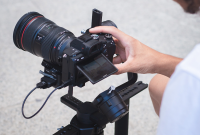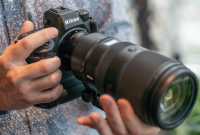Parameters to Consider When Purchasing a Digital Camera
Before purchasing any digital camera, you should consider how you want to use the camera as well as what you intend to do with the images captured by the camera. If you want to purchase it, you will need to strike a balance between a number of conflicting features and characteristics. It goes without saying that your goal will be to have a camera that offers you the shooting settings and picture quality of your choosing in a package that is both comfortable and simple to operate. In addition, the final choice will be dependent on your capacity to purchase the specific camera in question. In order to make an informed purchasing choice, you should take into account some of the factors listed above.
Making a financial plan before purchasing a digital camera
It is critical that you create a budget before making your choice on whether or not to purchase a digital camera. Establishing a budget is essential, regardless of whether you want to purchase the camera online or from a local retailer. You will have hundreds of choices when purchasing a digital camera, just like you would when purchasing any other large item such as a computer, vehicle, or home. It goes without saying that you do not want to be trapped with those cameras that you cannot afford to keep. Certainly, a high-end camera would provide you with the greatest zoom, the most mega pixels (which are not always associated with high-quality pictures), and many other additional capabilities. However, you must exercise caution since they may be more expensive than you can afford.
When starting out in the area of digital photography, it is recommended that you do not spend too much money on high-end digital SLR or prosumer cameras, especially if you are just getting started. You may be able to find some less expensive but more powerful small digital cameras that are easy to use and will not add weight to your luggage while traveling.It is recommended that you first get acquainted with the fundamentals of these digital cameras and then then invest your money on high-end digital cameras.
Take, for example, optical zoom.
Some people might disagree, but the truth is that, rather than placing too much emphasis on digital zoom, it is necessary to take optical zoom into consideration as an alternative.
In reality, the purpose of digital zooming is to conduct interpolation or computer-based guessing on a picture in order to increase the apparent zoom distance by a certain amount. It may result in pictures that are “fuzzy” or images that are less clear. In contrast, the optical zoom allows you to physically zoom in and out on your topic without having to move your camera.
The use of a higher optical zoom camera will allow you to capture a greater range of pictures, which is acceptable, but will be more costly. For this reason, lower-priced cameras will emphasize their digital zoom capabilities more prominently than their optical zoom capabilities.
There are two things to keep in mind.
If you are considering purchasing a digital camera, you will have a variety of options to choose from, including picture quality and zoom capabilities. Before purchasing a digital camera, there are two more factors that must be taken into consideration. These are the ones:
Media Type: There are many different media types available for cameras, including Compact Flash, Secure Media, and so forth. If you have previously used Compact Flash cards, it is understandable that you might be reluctant to purchase a camera that uses a different kind of memory, unless the camera is offering you some exceptional features that more than make up for the capacity loss.
Battery Kind: Whether you are currently using rechargeable batteries, you will need to check before purchasing a new camera to determine if the new camera can accept the same type of battery or not. It is possible, however, to consider purchasing a camera with its own unique battery if it provides you with twice the number of mega pixels, a wider zoom lens, and higher-quality pictures.
Small does not imply underpowered. There are several benefits to purchasing a small digital camera over a larger one. For starters, they are lightweight and portable, so you can take them with you everywhere you go. Aside from their physical characteristics such as minimal weight and low visibility, they are no longer underpowered digital cameras.
It is true that they may not have features comparable to those found in digital SLRs or high-end prosumer digital cameras, but they should not be dismissed as inferior. Their mega pixels are comparable to, and in some cases, even better than, those of their high-priced counterparts.



